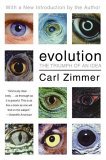As you are probably aware, especially if you are a student in my Evolution class, Charles' Darwin's seminal work "On the Origin of Species by Means of Natural Selection" has just passed a significant milestone: its 150th birthday in print! As you may also have noticed, a number of print and online publications and websites have been marking the occasion in various ways; some I have bookmarked for sharing here, but haven't gotten around to as yet!
At the beginning of the semester (as I do every semester), I had asked you students to approach the book through as fresh (even naive) a perspective as you could muster, setting aside any preconceptions and trying to put yourself in the mind of an educated person in 1859 getting your hands on the book for the first time, hot off the presses. That, of course, is easier said than done; especially when in class we are surveying the latest discoveries and insights from evolutionary biology. How can one erase 150 years of scientific progress on the question from one's memory? I'm presuming, of course, that at least some of that accumulated wealth of knowledge from these 150 years has trickled down into your consciousness through your various classes (and despite perhaps your best efforts!). Well, I hope most of you have made it at least most of the way through the wonderful (if tedious to some modern eyes) book. If so, you will appreciate this classic review, reprinted by The Atlantic Monthly where it was first published in 1860 upon the book's maiden voyage across the pond to the American market, and written by Asa Gray, the eminent botanist, contemporary and close correspondent of Darwin himself. Here's a wikipedia excerpt about the two men:
Corresponding with Charles Darwin, Gray was helpful in providing information for the development of Darwin's theory on The Origin of Species. Gray, considered by Darwin to be his friend and "best advocate", also attempted to convince Darwin in these letters that design was inherent in all forms of life, and to return to his faith. Notwithstanding, Gray was a staunch supporter of Darwin in America, and collected together a number of his own writings to produce an influential book, Darwiniana. These essays argued for a conciliation between Darwinian evolution and the tenets of orthodox Protestant Christianity, at a time when many on both sides perceived the two as mutually exclusive.
That should prime you to go read the review, which is pretty sharp and honest, starting on this cautious note:
Novelties are enticing to most people: to us they are simply annoying. We cling to a long-accepted theory, just as we cling to an old suit of clothes. A new theory, like a new pair of breeches, ("The Atlantic" still affects the older type of nether garment,) is sure to have hardfitting places; or even when no particular fault can be found with the article, it oppresses with a sense of general discomfort. New notions and new styles worry us, till we get well used to them, which is only by slow degrees.
Wherefore, in Galileo's time, we might have helped to proscribe, or to burn had he been stubborn enough to warrant cremation-even the great pioneer of inductive research; although, when we had fairly recovered our composure, and had leisurely excogitated the matter, we might have come to conclude that the new doctrine was better than the old one, after all, at least for those who had nothing to unlearn.
Such being our habitual state of mind, it may well be believed that the perusal of the new book "On the Origin of Species by Means of Natural Selection" left an uncomfortable impression, in spite of its plausible and winning ways. We were not wholly unprepared for it, as many of our contemporaries seem to have been. The scientific reading in which we indulge as a relaxation from severer studies had raised dim forebodings. Investigations about the succession of species in time, and their actual geographical distribution over the earth's surface, were leading up from all sides and in various ways to the question of their origin. Now and then we encountered a sentence, like Professor Owen's "axiom of the continuous operation of the ordained becoming of living things," which haunted us like an apparition. For, dim as our conception must needs he as to what such oracular and grandiloquent phrases might really mean, we felt confident that they presaged no good to old beliefs. Foreseeing, yet deprecating, the coming time of trouble, we still hoped, that, with some repairs and make-shifts, the old views might last out our days. Après nous le deluge. Still, not to lag behind the rest of the world, we read the book in which the new theory is promulgated. We took it up, like our neighbors, and, as was natural, in a somewhat captious frame of mind.
and towards the end, warily acknowledges the "uncanny look" as well as the "mischief" of the book:
So the Darwinian theory, once getting a foothold, marches boldly on, follows the supposed near ancestors of our present species farther and yet farther back into the dim past, and ends with an analogical inference which "makes the whole world kin." As we said at the beginning, this upshot discomposes us. Several features of the theory have an uncanny look. They may prove to be innocent: but their first aspect is suspicious, and high authorities pronounce the whole thing to be positively mischievous.
Doesn't that make this your must read essay of the week?













0 comments:
Post a Comment